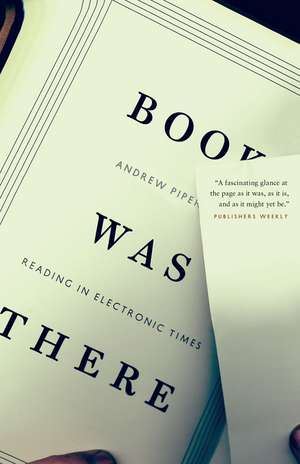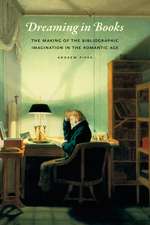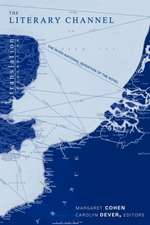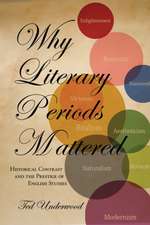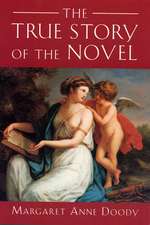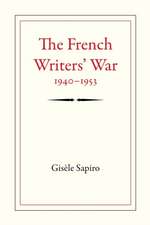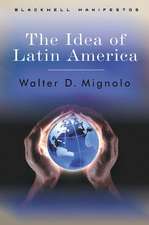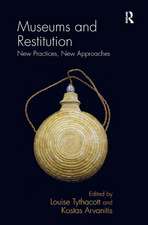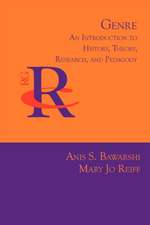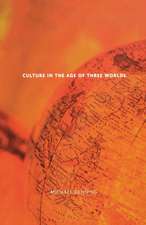Book Was There: Reading in Electronic Times
Autor Andrew Piperen Limba Engleză Paperback – 19 sep 2013
Andrew Piper grew up liking books and loving computers. While occasionally burying his nose in books, he was going to computer camp, programming his Radio Shack TRS-80, and playing Pong. His eventual love of reading made him a historian of the book and a connoisseur of print, but as a card-carrying member of the first digital generation—and the father of two digital natives—he understands that we live in electronic times. Book Was There is Piper’s surprising and always entertaining essay on reading in an e-reader world.
Much ink has been spilled lamenting or championing the decline of printed books, but Piper shows that the rich history of reading itself offers unexpected clues to what lies in store for books, print or digital. From medieval manuscript books to today’s playable media and interactive urban fictions, Piper explores the manifold ways that physical media have shaped how we read, while also observing his own children as they face the struggles and triumphs of learning to read. In doing so, he uncovers the intimate connections we develop with our reading materials—how we hold them, look at them, share them, play with them, and even where we read them—and shows how reading is interwoven with our experiences in life. Piper reveals that reading’s many identities, past and present, on page and on screen, are the key to helping us understand the kind of reading we care about and how new technologies will—and will not—change old habits.
Contending that our experience of reading belies naive generalizations about the future of books, Book Was There is an elegantly argued and thoroughly up-to-date tribute to the endurance of books in our ever-evolving digital world.
Preț: 145.32 lei
Nou
Puncte Express: 218
Preț estimativ în valută:
27.82€ • 30.22$ • 23.38£
27.82€ • 30.22$ • 23.38£
Carte tipărită la comandă
Livrare economică 21 aprilie-05 mai
Preluare comenzi: 021 569.72.76
Specificații
ISBN-13: 9780226103488
ISBN-10: 022610348X
Pagini: 208
Ilustrații: 40 halftones
Dimensiuni: 140 x 216 x 20 mm
Greutate: 0.3 kg
Editura: University of Chicago Press
Colecția University of Chicago Press
ISBN-10: 022610348X
Pagini: 208
Ilustrații: 40 halftones
Dimensiuni: 140 x 216 x 20 mm
Greutate: 0.3 kg
Editura: University of Chicago Press
Colecția University of Chicago Press
Notă biografică
Andrew Piper teaches German and European literature at McGill University and is the author of Dreaming in Books, also published by the University of Chicago Press.
Cuprins
Prologue: Nothing Is Ever New
1. Take It and Read
2. Face, Book
3. Turning the Page (Roaming, Zooming, Streaming)
4. Of Note
5. Sharing
6. Among the Trees
7. By the Numbers
2. Face, Book
3. Turning the Page (Roaming, Zooming, Streaming)
4. Of Note
5. Sharing
6. Among the Trees
7. By the Numbers
Epilogue: Letting Go of the Book
Notes
Recenzii
“Celebrates the lasting power of print and revels in the human experience with text,
from the simple act of holding a book in the hand to the digital manipulation of the
text. . . . A call to dust off the volumes in our libraries and look at them anew.”
from the simple act of holding a book in the hand to the digital manipulation of the
text. . . . A call to dust off the volumes in our libraries and look at them anew.”
“At last, not an elegy for the book, whose reported death as material object has been greatly exaggerated, but the retooling of the computer screen itself as a rearview mirror on the perennial nature—and mystery—of reading. As down to earth as it is up to the minute, this is the book on bookishness we’ve needed, dispatched with unpedantic ease and brio, fast, aphoristic, and repeatedly eye-opening. Andrew Piper has plumbed the history of reading and produced a true page-turner on the legacy and fate of the page. Learned and witty throughout, Book Was There instructs in the delights of reading, on screen as well as off, by reproducing them anew in every phase of its meditation.”
“An exquisite book, richly informed and wonderfully alert to both the riches of the past experience of reading and its potential for the future. Andrew Piper shows that what we think of as reading has always formed part of a wider range of activities and experiences, individual and collective—and never more so than now, as the page gives way to the screen. Book Was There has an enormous amount to offer anyone interested in the ways we use texts now and the many ways we have done so in the past.”
“This series of enlightening meditations on the experience and history of reading reveals what we are poised to gain and to lose with the advent of e-readers and related digital media. . . . Often striking an audacious lyrical tone, he displays a remarkable sensitivity to the ways in which humans have historically talked about and understood reading. As such, Piper does a fine job of uncovering the metaphors on which the rationality and logic of reading rest. . . . A fascinating glance at the page as it was, as it is, and as it might yet be.”
“Compelling. . . . Piper shows the apparent internet revolution as being a continuum of book culture.”
“I like Piper’s freewheeling approach, his search for the feel of things—his consideration of the touch screen, for example, as, in his words, part of ‘the culture of the “hand-held,” the way computing has steadily been migrating from large rooms to our desks to our hands.’ . . . The argument [about handwriting] is characteristic of Piper in its reasoned quality, its erudition, even in its reference to the experience of his children. It is also characteristic in its defence of older media without dismissing newer media and its manifold wonders.”
“[One of] the two most interesting angles I saw this year on the history of the book and the fate of reading.”
“[Piper] has a remarkable feel for the textures of reading as an experience, and the ways it has, and hasn't, changed over the centuries.”
“Evocative. . . . [Piper] has a remarkable feel for the textures of reading as an experience, and the ways it has, and hasn’t, changed over the centuries. . . . Book Was There is a reminder that we should savor this world of textual diversity and celebrate its possibilities rather than simply fret about the end of the a world.”
“Book Was There occupies a niche somewhere between a couple of fields of study that were already interdisciplinary. One is the history of the book, from scroll to e-reader. The other is a phenomenological psychology of reading—an effort, that is, to describe the concrete experience of engaging with the written word, which involves more than the sense of sight, or even the neural processes that somehow convert squiggles into meaning.”
“Piper triumphs creatively as well as theoretically. Even his most esoteric observations mix a sense of corporeal universality with a creative individualism that is wholly relatable. He’s smart but grounded. . . . The pleasure of this prescient and idiosyncratic work . . . comes, appropriately, from reading.”
"Piper is lyrical where [other] studies are data-driven, and organizes his material by theme rather than chronology. . . . Piper draws arresting analogies between the old and the new. . . . Book Was There extends far beyond literature proper, bringing together research by historians, bibliographers and media theorists into a surprisingly seamless synthesis, with morsels of original research thrown in for good measure.”
“Piper’s sense of play and his fluid style make it enjoyable reading.”
“[A] lovely and personal account of reading past and present. . . . The book provides a useful starting point for thinking through how the history of reading inflects current habits.”
“Excellent, profound, unique, sometimes challenging. . . . I am quite content to have been in the company of the man who wrote Book Was There.”
“With equal claim to being media theory, history of the book and a poignant piece of essay writing, Book Was There weaves between critical reflection and historical anecdote. . . . Piper cuts a wide swath through the thorny fields of debate about the digital future by bringing out the haptic qualities of books as tools with distinct functions, unthreatened by the co-presence of other media.”
